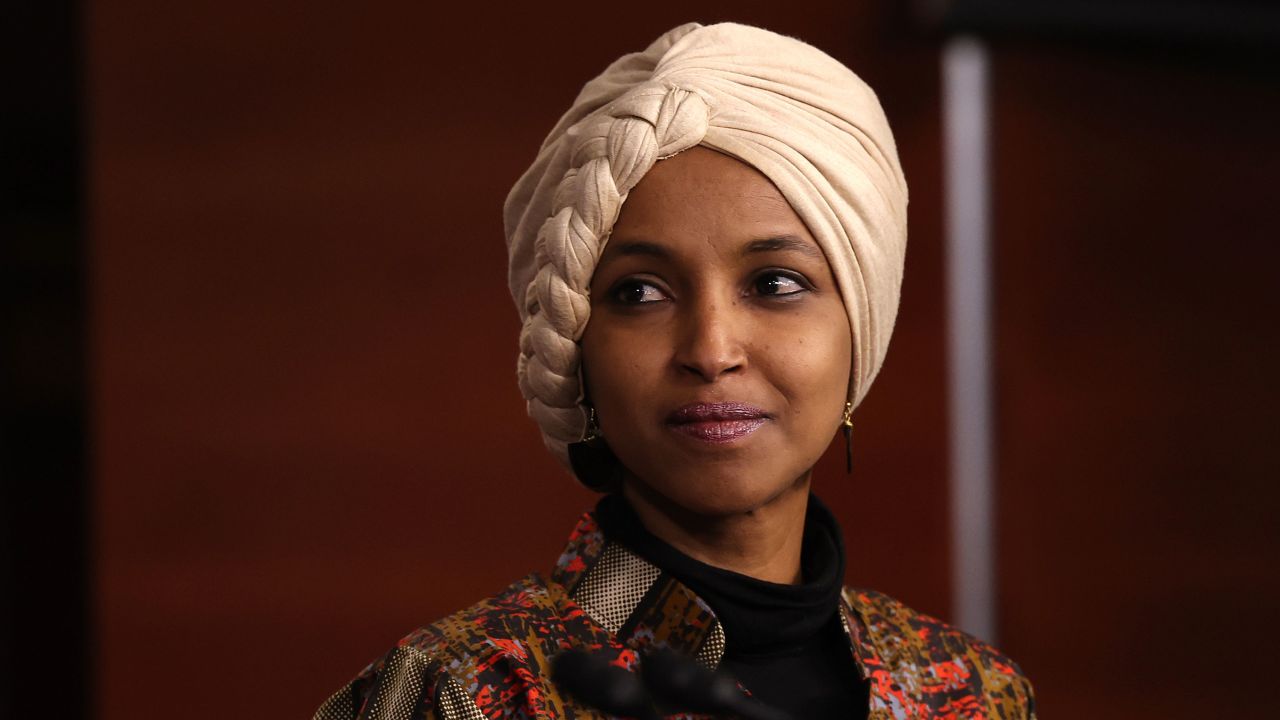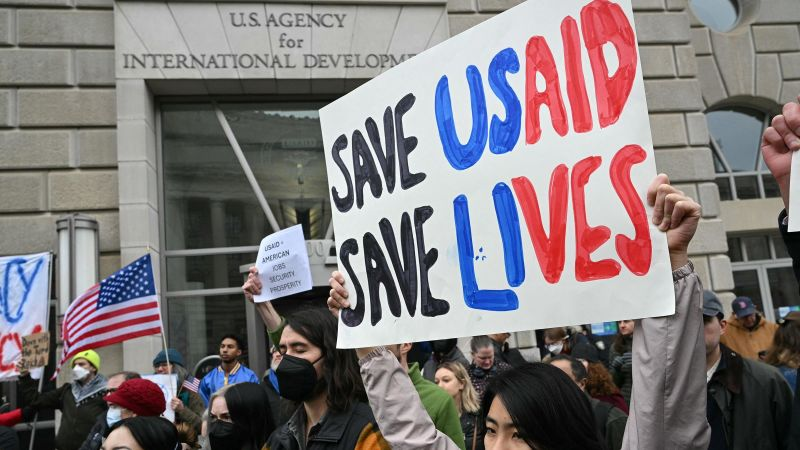CNN —
Donald Trump’s apparent plans to shutter the US Agency for International Development without congressional authority represent another unprecedented move by a president who, since taking office two weeks ago, has been testing the limits of his office by defying longstanding legal and political principles, legal experts told CNN.
The decades-old agency appeared to be in a freefall on Monday after Elon Musk, a top Trump aide and tech billionaire, said that Trump – without pointing to any specific executive order issued by the president – had signed off on shutting it down.
Hours later, Secretary of State Marco Rubio announced that he was USAID’s acting administrator.
“We’re really in uncharted territory here,” said CNN Supreme Court analyst and Georgetown University of Law professor Steve Vladeck. “We’ve never seen a president try to basically destroy an agency that Congress has stood up.”
On Monday, Trump claimed he doesn’t need Congress at all to scrap USAID altogether.
“Not when it comes to fraud. If there’s fraud, these people are lunatics,” Trump said when asked by CNN’s Jeff Zeleny about his capacity to exact major changes to USAID. “We just want to do the right thing. It’s something that should have been done a long time ago.”
The agency dispenses billions of dollars annually across the world in an effort to alleviate poverty, treat diseases, and respond to famines and natural disasters. It also promotes democracy building and development by supporting non-government organizations, independent media and social initiatives.
But Trump’s claim that he can single handedly shut down USAID is at odds with Congress’ distinct role in forming and closing federal agencies, said Matthew Kavanagh, director of Georgetown University’s Center for Global Health Policy and Politics.
“A combination of Article One and Article Two powers of the Congress have been interpreted very clearly by the US Supreme Court and by all of the congressional mandates that have come since then to understand that it is Congress’ ability to create and to abolish agencies and offices,” Kavanagh said.
“The Supreme Court has regularly recognized that it is the US Congress’ prerogative to legislate, and within that legislative power to create or abolish agencies,” he added. “The president cannot unilaterally abolish an agency that has been created by Congress. That takes an act of Congress and doing so is clearly unconstitutional.”
The earliest iteration of USAID was established in 1961 under President John F. Kennedy’s administration. During President Bill Clinton’s tenure, Congress passed a law that formally established the agency we know today but also gave the president the option to keep it within the State Department. Clinton declined, paving the way for the agency to exist independent of the department.

Rep. Ilhan Omar: USAID kept my family fed & safe
01:17 – Source: CNN
Rubio said in a letter to lawmakers later Monday that he had tapped Peter Marocco “to begin the process of engaging in a review and potential reorganization of USAID’s activities to maximize efficiency and align operations with the national interest.”
He concluded by writing that the aid agency “may move, reorganize, and integrate certain missions, bureaus, and offices into the Department of State, and the remainder of the Agency may be abolished consistent with applicable law.”
Destroying USAID might fit squarely within Trump’s political agenda, but the move itself may ultimately be a stress test for a Republican-controlled Congress that has shown little appetite for reining in the president’s moves.
“This administration has said that they want to radically reshape the US government bureaucracy in multiple different ways. And here, the aid agencies of the United States are among the weakest of those agencies politically,” Kavanagh said.
“We’re not talking about the Department of Defense – yet. We’re not even talking about the Department of Education – yet,” Kavanagh added. “I think they are testing what they can get away with and clearly trying to make this move even if it’s in violation of US law to see whether or not they will get stopped.”
Trump has in the past pledged to abolish the Department of Education, though executive-level departments, like USAID, need congressional approval before they can be shut down.
“If he’s successful here … this won’t be the last agency that the president tries this way,” Vladeck said. “But that’s exactly the point, which is that no matter how much we like or dislike an agency, you know, it’s Congress’ prerogative, not the president’s, that’s at stake here.”
Democrats on Monday sounded the alarm over the administration’s moves, with some calling it unlawful and suggesting they would fight the shutdown plan in court.
Sen. Chris Murphy, a Democrat from Connecticut, called the current moment “a constitutional crisis” during a news conference in front of the agency’s headquarters in downtown Washington, DC.
Virginia Rep. Gerry Connolly, the top Democrat on the House Oversight and Government Reform Committee, similarly blasted Trump’s plans, saying, “We are going to fight, in every way we can – in the courts, in public opinion, with the bully pulpit, in the halls of Congress.”
But it’s not clear how Democrats opposed to the plans might be able to mount a workable legal challenge to them, since clearing a key threshold issue required to bring cases in court might be a challenge for lawmakers specifically.
Vladeck speculated that legal challenges could come from groups not receiving funds they’re entitled to get from USAID or employees who might be laid off.
“If there are entities that have signed contracts with USAID – they might have a breach of contract claim,” he said. “If there are civil servants who are employed by USAID who think that their employment has been wrongfully terminated in violation of Civil Service protections – they might have a claim.”
CNN’s Jennifer Hansler, Lauren Kent, Alex Marquardt and Kevin Liptak contributed to this report.
